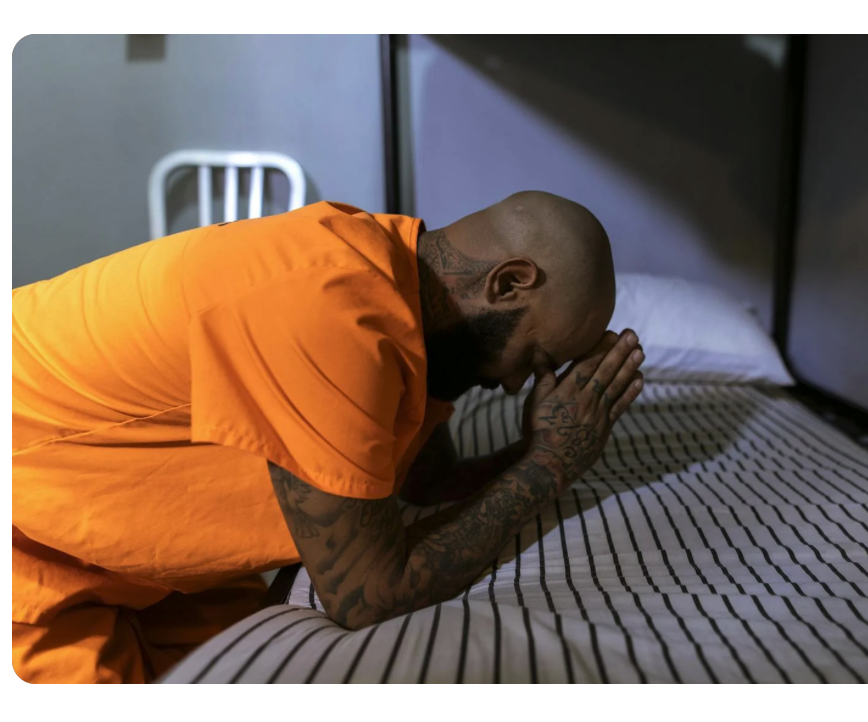 The Faith Factor:
The Faith Factor:
Health & Peace In Prison
Church attendance has been in a downward cycle for 20 years. Who needs it? Now we congregate around smartphones to look at dancing influencers, pornography, trained squirrels, and pictures of a naked person with your neighbor’s head attached. But since there are no smartphones in prison for inmates, there is an emptiness that may be filled with the opportunity to know God and maybe know themselves a little better.
For someone in prison, religious training can be a lifeline. In studies that go back more than a hundred years, researchers have found that incarcerated people who engage with religion experience an easier adjustment to prison life and improved mental health, including lower levels of depression and anxiety. Religion has also been found to support positive emotional development during incarceration as well, especially among those serving life sentences, who report finding a sense of hope and meaning through their religious beliefs.
In the absence of any kind of religious training, a young man, in our money-centric, often violent world, can easily be lost. Life is tough, but prison is tougher, and faith-based programs are shown to lift incarcerated people out of their circumstances into an atmosphere that promotes forgiveness, honesty, and personal accountability, as they discourage antisocial and destructive behavior. Instead, they are encouraged to counter the “prison code” with transparency, contrition, and spiritual transformation.
Meanwhile, other studies have found that religious teaching reduces delinquent behavior and actually creates a healthier environment that includes reduced hypertension, lower levels of drug and alcohol dependency, fewer promiscuous sexual behaviors, a reduced likelihood of suicide, and increased levels of well-being, hope, and educational attainment.
Life-altering events and transformative experiences lead some people to faith. (It happens more than you think.) While others start their faith journey in prison and continue after release. One former inmate became a minister after spending more than half his life behind bars, and the feared cartel gang member and drug lord, Kevin Mendoza, is now a devout Christian, dedicating his life to helping others find redemption.
Finally, a 2018 study of prison chaplains reported that religious programming gave incarcerated people a sense of purpose and community that tended to change their patterns of criminal thinking. As groups were formed, they said, “strong social support systems developed, as the members held each other accountable to higher moral standards.”
Sounds like a good church to me,
Nancy








